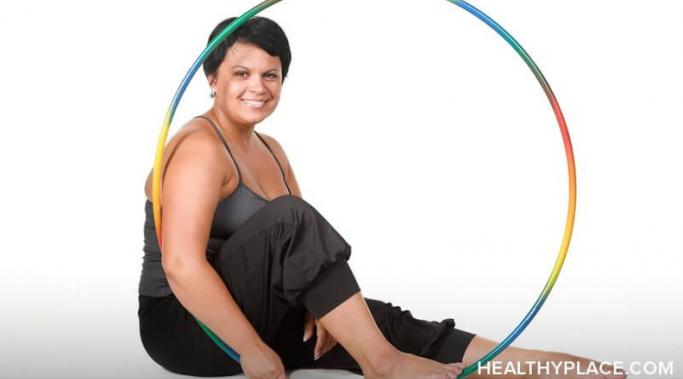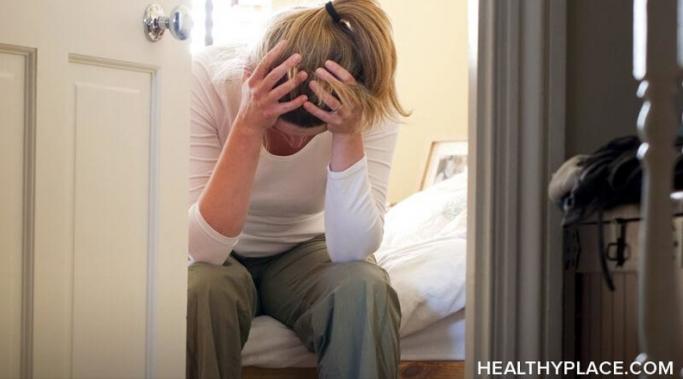Blogs
When I say self-inflicted, I don't mean deliberate, nor do I necessarily mean conscious, and I don't mean it in the sense of self-harm, either. I mean it in the sense that anxiety, mental illness, is continuous, forceful injury to the ego - and unavoidably, inextricably linked-in to our idea of self.
If anxiety isn't my fault, then whose fault is it?
The question doesn't help. I'd ban it, if I could. Fault?
I know a forty-something woman who I’ll call Bonnie. For lack of a better adjective, the best way I can describe her is simply “cool.” She’s well-educated (holds multiple degrees), has traveled and lived abroad, is smart, funny, kind, and is an interesting conversationalist. She’s also single as single can be — as in never been married. I’ve often wondered why she’s not in a relationship. I mean, if I were a guy I would probably want to date her.
There is a common refrain that if you looked in the DSM, everyone would have some mental disorder. And in point of fact, many symptoms are fairly generic and can be attributed to many. Fatigue, insomnia, thoughts of death, loss of pleasure and weight loss are part of the depression diagnosis.
But the part no one seems to remember is what’s under that,
The symptoms cause clinically significant distress or impairment in social, occupational, or other important areas of functioning.
"Your children are not your children.
They are the sons and daughters of Life's longing for itself.
They come through you but not from you,
And though they are with you yet they belong not to you."*
A picture is, as they say, worth a thousand words. I'm thinking about a picture that actually rendered me speechless.
Recently I heard a familiar story from someone struggling to understand her dissociative disorder but unable to get any direct answers or explanations from her therapist, who is exercising caution because she doesn't want to reinforce the dissociation. While this is an understandable and common concern for clinicians treating Dissociative Identity Disorder, there is a vast difference between psychoeducation and fostering further fragmentation. When you refuse to fully invest in the former you leave your clients ripe for the latter. If for no other reason than that, Dissociative Identity Disorder treatment must include psychoeducation.
A verbal abuser defines you--he tells you who you are. And if you don't act like the person he says you are, then he abuses you into submission. A verbal abuser does not tire of turning you into someone less than yourself. A verbal abuser will abuse you long after you leave the relationship, if possible. A verbal abuser does not stop trying to make you who he thinks you should be.
Who does he think you should you be? A female version of him. Or rather, the female version of who he thinks he would be if he were a woman. And that is what I deal with today because a verbal abuser and I had children together.
Body image consists of our thoughts, feelings, and perceptions about our bodies, how we believe others see our bodies, and how we feel inside our bodies. When we see ourselves accurately, accept the way we look, and feel good about our bodies, we have a positive body image. But many of us, perhaps particularly women and girls, don't like the way we look and struggle daily to meet the unrealistic, impossible demands we place on ourselves. And for some, distorted body image can lead to depression, even eating disorders.
Some people believe that being crazy makes you creative (perhaps brilliant) and being creative makes you crazy. Similarly, along this line of logic is that taking medication makes you uncreative and perhaps, un-brilliant.
Well, pish-tosh I say.
My sister and (soon-to-be-ex) brother-in-law told their oldest daughter, my 9-year-old niece, they are getting a divorce. My sister and the girls will move into a duplex; their dad will stay in the house. It's an amicable situation (at least, as amicable as it can be)--no custody battles, no front-lawn fights, no holidays ending in thrown dishes.
And my niece, who has always had problems with anxiety, is apparently taking it about as well as...whatever the opposite of "well" is.
I've had serious anxiety issues since I was about 12, give or take. Growing up, I guess I internalized the way people look at you when they think you're crazy; The questions they ask, and the far more terrible ones they don't.
Why can't I deal with this mental health thing without causing so much trouble, anyway?!
Sometimes I feel like I just don't get it; Like I can't, or won't, or something somewhere inside is keeping me from understanding enough about myself, mental health, how to heal things.
Anxiety: All in all, another brick in the wall?








